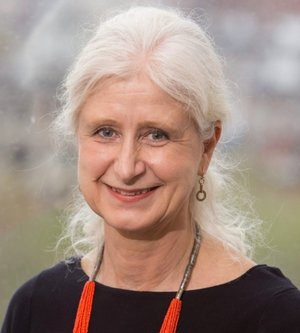By Christopher Geissler, Ph.D.
Literacy—the ability to read and write—is key for a child’s success in school. This ability requires phonological awareness, an understanding of a language’s sounds, and how to combine sounds into words. Children who are deaf or hard of hearing often experience difficulties with literacy given their limited access to sounds and the resulting poorer phonological awareness skills. In the September 2019 issue of Frontiers in Psychology, 2017 Emerging Research Grants scientist Christina Reuterskiöld, Ph.D., and team detail their study of the relationship among rhyme awareness (the first phonological skill children develop), vocabulary size, working memory and linguistic characteristics of words in children with typical hearing and children with cochlear implants.
Studies have shown that cochlear implants improve speech and language skills in children with hearing loss, but the researchers were more specifically interested in these children’s phonological awareness skills. They tested this by presenting the children with groups of words and asking them to identify the one that did not rhyme with the others. In contrast to previous studies on typically developing children, they found that in children with cochlear implants, it made little difference if a target word belonged to a group of many rhyming words or few rhyming words, or whether a child’s vocabulary was large or small.
Instead, it was working memory that proved most important. Working memory allows individuals to temporarily store or process information. The group found that there were no significant differences in working memory skills between children with typical hearing and children with cochlear implants with similar hearing experience. (These children had been implanted at an early age and were slightly older than the typical hearing children in the study.)
The authors caution that their findings must be interpreted in light of the small number of children (six subjects) with cochlear implants who participated in the study. Nevertheless, this research suggests a potential association between hearing experience and working memory skills, further underscoring the importance of early treatment for hearing loss.
Christina Reuterskiöld, Ph.D., is an associate professor of communicative sciences and disorders at New York University’s Steinhardt School of Culture, Education, and Human Development. Her co-principal investigator was Katrien Vermeire, Ph.D., an assistant professor of communication sciences and disorders at Long Island University, New York. Reuterskiöld’s 2017 Emerging Research Grant was generously funded by the General Grand Chapter Royal Arch Masons International.
Subscribe to receive updates about future hearing and balance discoveries from Hearing Health Foundation’s scientists.




